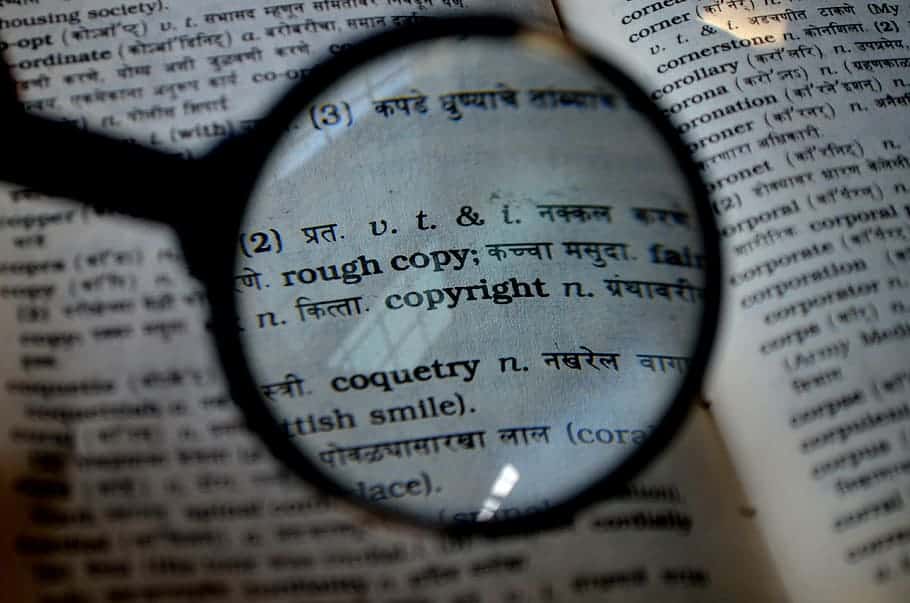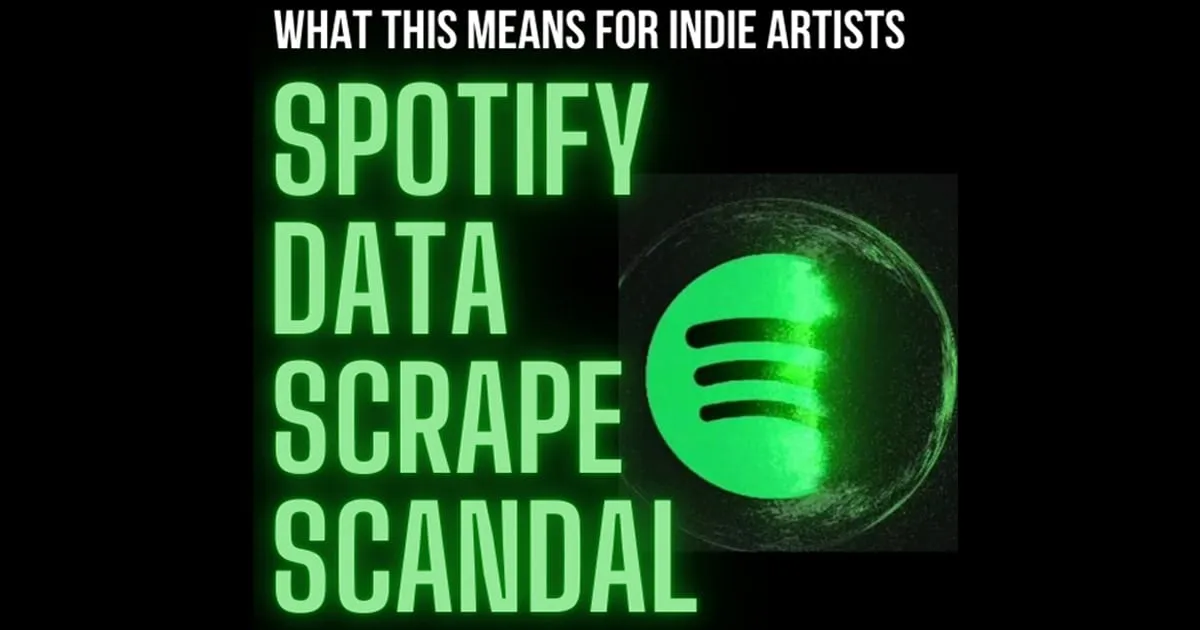Everything about this bill that would reduuce the length of copyright is ridiculous and almost certainly unconstitutional, writes Mike Masnick.
Op-ed by Mike Masnick of Tech Dirt

Apparently, I never should have wished on that old monkey’s paw for copyright term reduction. One of the very reasons why Techdirt exists in the first place, and why it was started nearly 25 years ago, was to fight back against over expansive copyright laws, and, as such, we’ve spent many years and many posts arguing about the problems of excessive copyright terms. Indeed, there are few things I’ve hoped for more in these two and a half decades than for Congress to realize the dangers of excessive copyright and to move to shorten copyright terms back towards their actual constitutional underpinnings.
Almost exactly ten years ago, Republicans in Congress actually seemed to recognize that copyright terms were too long, and published a paper arguing, in a principled way, for shorter copyright terms. Of course, within 24 hours, the screaming responses from Hollywood caused the paper to be pulled, and for the author of the paper to be fired.
So… now, we’re actually seeing a bill to reduce copyright terms, coming as promised from Senator Josh Hawley, one of the most performative, least principled elected officials around. Hawley has now officially released his Copyright Clause Restoration Act and made it abundantly clear that he’s doing so to punish Disney for that company’s political speech.
Everything about this bill is ridiculous and almost certainly unconstitutional. And I say that as someone who was arguing for shorter copyrights that were more closely aligned with the Constitution since Josh Hawley was in a private boys prep school (which is funny since he so wants to present himself as a man of the common people).
So, let’s go through the bill, and discuss what actually makes sense, but also why Hawley’s attempt here is so ridiculously bound to fail. It starts out by returning copyright term to what Hawley (incorrectly) refers to as the “original term.”
(1) ORIGINAL TERM.—Notwithstanding any provision of title 17, United States Code, or any other provision of law, copyright in any work shall endure for 28 years from the date it was originally secured.
(2) EXTENSION.—The holder of a copyright under paragraph (1) shall be entitled to a renewal and extension of the copyright in the applicable work for a further term of 28 years if the holder applies for that renewal and extension during the 1-year period before the expiration of the original term of the copyright under that paragraph.
So, first off, if we’re going back to the “original term” that would be 14 years with a 14 year renewable extension possible. The US didn’t shift to a 28 year/28 year extension copyright term until the Copyright Act of 1831. Also, I mean, if we’re going back to “original” copyright thinking, the law only applied to maps, charts, and books. Hell, sound recordings weren’t even covered by federal copyright law until 1972.
Anyway, there are actually strong public policy reasons to consider returning the US to a 28 year/28 year extension copyright system. Evidence has shown a massive cost to the public of our over extended copyright law — and the constitutional underpinnings of copyright law are that it must benefit the public (not, necessarily, the copyright holder). On top of that, back when we did have a 28/28 copyright system (which we had until 1978), the vast, vast majority of copyright holders did not renew their copyrights at the 28 year mark. The one exception, by the way, was movies (which, hold that thought…).

So, there are perfectly good, principled policy reasons to push for shorter copyright. Indeed, there are economic studies that have suggested the ideal copyright term for public benefit is somewhere around 15 to 38 years. And, it seems that a perfectly reasonable way to set this up is to have extremely short copyright terms, with frequent renewal periods that grow increasingly expensive. If it’s not worth it for someone to renew, let the work go into the public domain where the public can make use of it.
Of course, there are a few problems with jumping into this approach, with a big one being that in order to do this, the US would have to immediately violate a decently large number of international treaties. However, that’s long been the excuse of those looking to extend copyrights ever longer, or pushing ever more draconian copyright laws on the rest of us. They go running to international trade negotiations and slip in something awful, and then run back to Congress, demanding that we make copyright worse to meet our “international obligations.” After all, the architect of the DMCA, Bruce Lehman, has publicly admitted that this is how he got the DMCA into law. After Congress refused to pass it, he ran to Geneva, and got an international treaty passed, then went back to Congress insisting it had to enact the DMCA to comply with our “international obligations.”
That said, the reality is that Congress is not bound by any international treaties, and can pass legislation that violates them. That doesn’t mean it won’t create some international messes, though, and that could lead to retaliation in a variety of forms.
The next section of the bill then goes even further, and into murkier legal territory, by trying to claw back copyright terms already granted, making the law retroactive:
(2) RETROACTIVE EFFECT.—
(A) IN GENERAL.—Subject to subparagraph (B), subsection (a) shall apply with respect to a copyright that, on any date on or after May 1, 2022, is owned by a person that—
(i) has a market capitalization of more than $150,000,000,000; and
(ii)(I) is classified under North American Industry Classification System code 5121 or 71; or
(II) engages in substantial activities for which a code described in subclause (I) could be assigned.
Phew. So there’s a lot to break down here. This is Hawley’s weird attempt to make it obvious to everyone that this is, effectively, a bill of attainder, and specifically designed to punish Disney. Hawley, who positions himself as a “constitutional scholar” surely knows that bills of attainder are unconstitutional. I mean, it’s right there in Article I, Section 9, Clause 3:
No Bill of Attainder or ex post facto Law shall be passed.
A bill of attainder is defined as the legislature effectively targeting an individual, group, or company for punishment. And, I mean, Hawley didn’t shy away from making it clear that this was a bill of attainder in his press release, literally headlining it “Hawley Introduces Bill to Strip Disney of Special Copyright Protections.” That press release title is basically “hello, I am introducing a bill of attainder.” Because Disney has no “special” copyright protections. It just has copyright protections. And then literally calling out the company you are trying to punish as the reason for your bill is effectively handing them their brief to sue to stop the law as unconstitutional.
But, to really cement this home, while the bill would restrict all future copyright to a maximum of 56 years, it would strip only a small number of companies of their current copyrights. And from the text above, you can see how narrowly focused the bill is. Basically, everyone who has extremely long copyrights today can keep them unless the copyright is held to a company with a market cap over $150 billion (Disney is currently around $200 billion), and is classified in the NAICs system as being in two specific industries: 5121 for “Motion Picture and Video Industries” and 71 for “Art, Entertainment, and Recreation” which is the code that generally applies to theme park companies.
It will not surprise you to learn, of course, that Disney is in the 5121 classification and its theme park division, Walt Disney Parks and Resorts US is listed in NAICS 71.
Doing a quick search around, it appears that the retroactive nature of the bill may only apply to a very small number of companies which are in those classifications and over $150 billion in market cap. On the Hollywood studio side, you have Disney and Comcast NBCUniversal (though NBCUniversal’s primary NAICS code is listed in 5152 for “pay and specialty TV”), but clause II would likely cover it. Netflix’s primary classification is otherwise, but it would also fit.
I guess it’s possible Amazon could get covered by this as well, as it owns MGM. MGM by itself has a much smaller market cap, but Amazon has a larger one. So if you lumped them together, it could take away all of Amazon’s copyrights and… well, wouldn’t that be interesting? Viacom’s market cap is below the threshold. Arguably, Apple might be covered as well. The new Warner Bros. Discovery market cap is also way below the threshold.
So, end result, no new copyrights can last more than 56 years. Most existing copyrights remain until they were set to go into the public domain, except for the um, “woke” corporations of Disney, NBCUniversal, Netflix, Amazon and Apple. It sure looks like this is directly targeting a very small number of companies — companies that Republicans have been known to criticize heavily.
There is also the takings issue. In the past, I’ve seen (mainly copyright maximalists) argue that reducing copyright would violate “the takings clause” of the 5th Amendment. This is the part that says “nor shall private property be taken for public use, without just compensation.” In general, I have problems with this applying to copyright, because I don’t think it’s appropriate to call copyright “private property.” And, in fact, if it is then it seems that the takings clause should have been violated when we massively extended copyright with the 1976 Copyright Act, and again in 1998 with the Sonny Bono Copyright Term Extension Act. In both cases, works that were slated to reach the public domain were “taken” back and held in copyright for many more years. If that’s not a “taking” under the 5th Amendment, then shortening copyright terms shouldn’t be either.
Still, I would bet that Disney and others would claim otherwise, and they would have to fight their way through the court. And we’ve seen that this particular court (even very recently) takes a very broad understanding of the “takings clause,” to the point that it would probably need to overrule its own ruling from just last year to decide otherwise.
There is one final clause in the bill, a weak attempt to deal with cases where some of the companies listed above have copyrights that would expire under this bill, but which are still in active use being licensed. There, it includes some terms under which the license would expire over a 10 year period, effectively phasing out the copyright over that time.
(B) LICENSING.—If, as of May 1, 2022, a person is operating under a license with respect to a copyright that is subject to subparagraph (A) and that, because of the application of that subparagraph, would expire during the 10-year period beginning on May 1, 2022, that person shall continue to hold the rights contained in that license (to the exclusion of any person not granted those rights by a license before May 1, 2022) for a period that is the shorter of—
(i) 50 percent of the remaining license term, as of May 1, 2022; or
(ii) 10 years, beginning on May 1, 2022.
And, well, whatever. It’s not like this bill has a snowball’s chance in hell of going anywhere. Because it’s not actually meant to go anywhere. It’s all part of Hawley’s non-stop performative bullshit, playing to a base he believes is so stupid that they’ll lap up whatever culture war nonsense he puts in front of them. And, right now, they want their politicians to “punish” Disney, because Disney execs offered some mild criticism of Florida’s pro-bigotry bill.
Copyright terms should be reduced. Massively. But this isn’t going to do it. Nor is it actually intended to to do it. Copyright term reduction is just a convenient tool for Josh Hawley to do Josh Hawley kinds of things. Anyway, that will teach me never to wish on the old monkey’s paw for copyright term reduction ever again.





